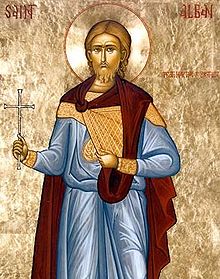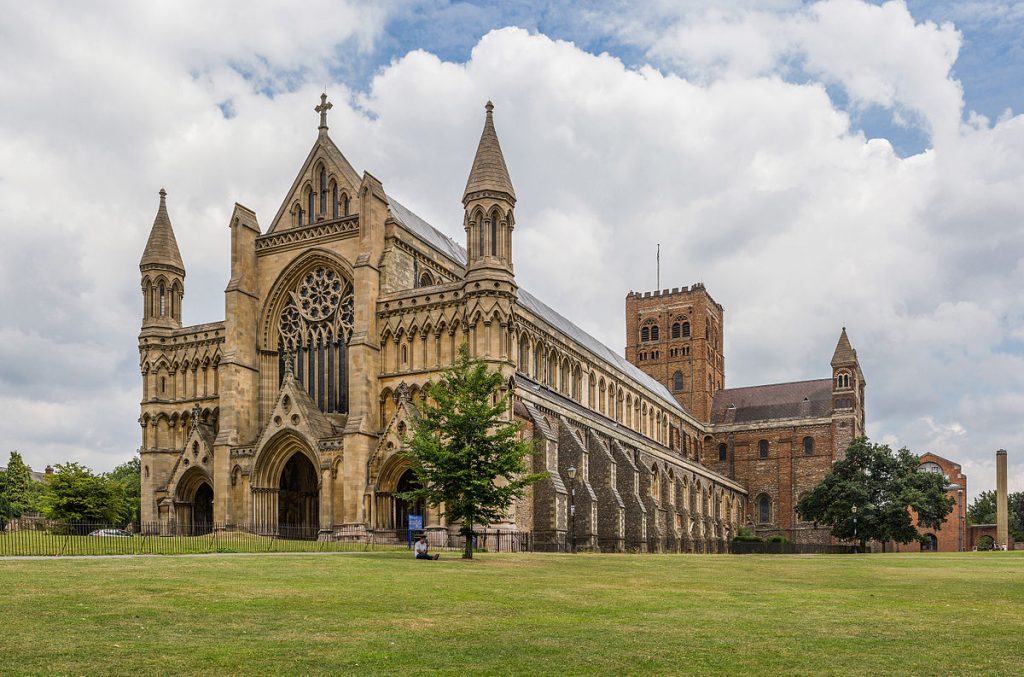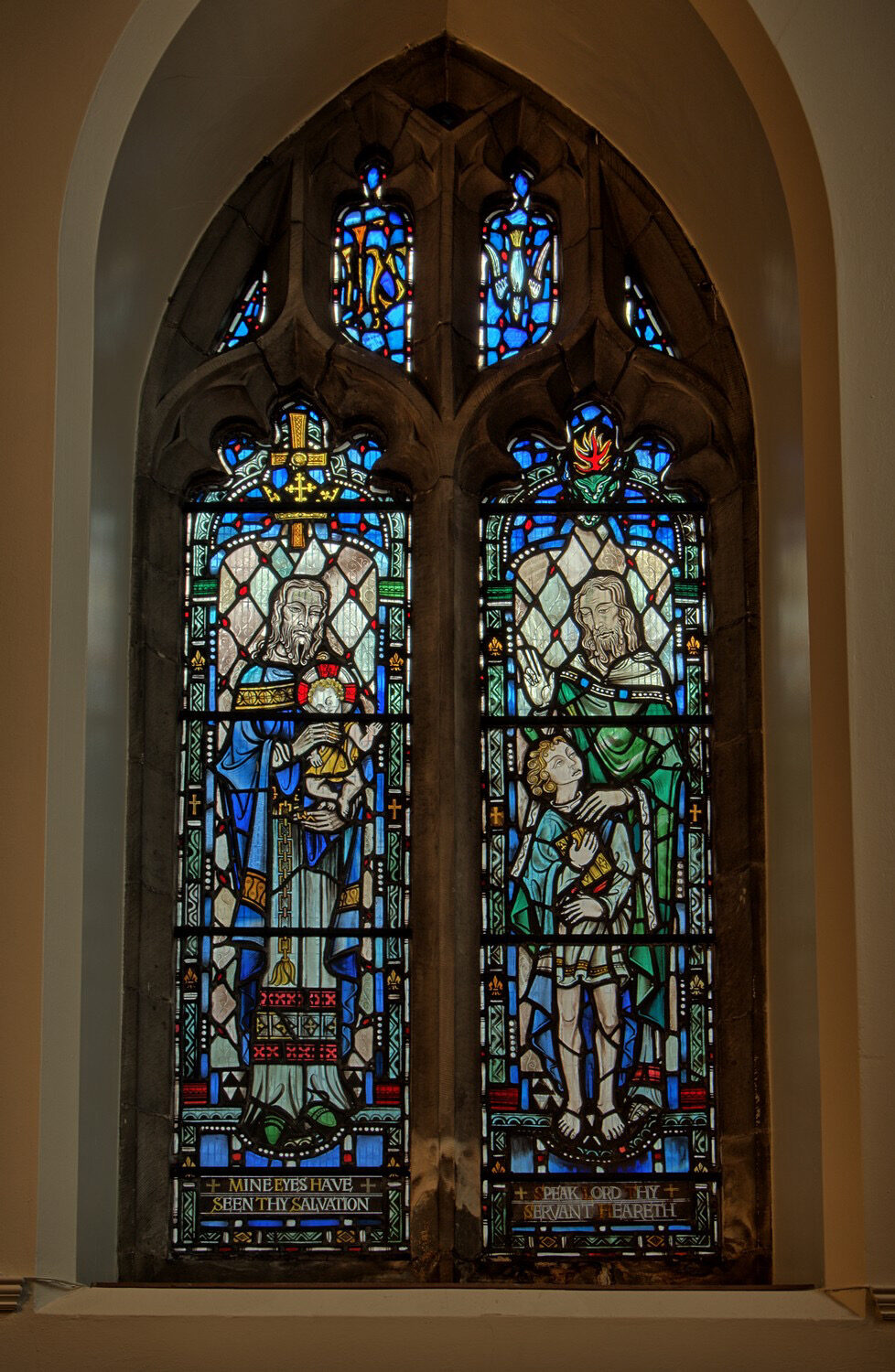22 June
St Alban is generally recognised as being one of the earliest, if not the first British Saint, and he is honoured as being the first British
martyr. There is no doubt that he existed and was martyred because he is mentioned in very early manuscripts but the dates and circumstances are a bit hazy and are embroidered by improbable and unreliable legend. The date of his birth is unknown but it must have been in the early part of the third century. The date of his martyrdom is recorded as being 22nd June but the year is quoted in different sources as being 251 or 305. He came of Romano-British stock and legend has it that he served in the Roman Army and lived in the Roman Town of Verulamium (now St Albans).

The generally accepted story is that St Alban who was a pagan gave shelter to a Christian priest, Amphibalus, who was fleeing from the Romans during one of the purges against the Christians. Alban was so impressed by the fugitive’s faith and courage that he asked the priest to teach him about Christ and he became a Christian. The Romans having heard that the priest was in Alban’s house came to arrest Amphibalus, but Alban exchanged robes with the priest and pretended to be the priest who was enabled thereby to escape.
Alban was seized and brought before the Magistrates and was given the opportunity to recant his faith and worship the Emperor. Alban refused saying he worshiped “the one true and living God” and the Magistrates had him scourged and gave him a second chance to recant. Again he refused and was sentenced to be executed and taken to a hill overlooking the town where he was beheaded.
So much for reasonable reliable information about St. Alban but it was not long before a mass of fables were woven about him as his story was related by tellers of stories in the halls of the nobles and in the towns and villages. Also there was another reason for enhancing the prominence of the Saint inasmuch as in the fourth century a British monk, Pelagius, had preached heretical teachings suggesting that there was no such thing as original sin and this had become so popular in Britain that a mission was sent under St Germanus to quell the heresy. In doing this Germanus invoked the popularity of St Alban as a counterbalance to that of Pelagius, and infact visited Verulamium, where a church dedicated to St Alban had now been built and presented to the church a shoulder blade that he had brought from an abbey near Cologne which was alleged to be that of St. Alban. He also promoted the wild legends.
The fables were collected and written up by Bede in his history of the early church in Britain. They allege that on the way from the town to the place of execution on a hill overlooking the town the Saint was thirsty and had to stop whereupon a spring bust forth at his feet. The execution party then came to a stream that was in spate and they could not cross it. The Saint, wanting to hasten to his execution and a place in heaven, prayed and the waters subsided. No such stream exists in the vicinity of the execution site. The Roman soldier detailed as executioner was so amazed that he threw down his sword and said that he was adopting Christianity and he was executed after the Saint.
The replacement executioner beheaded the Saint when the party arrived at the place of execution and immediately as the blow struck the executioner dropped dead from a fit with his eyes popping from his head. The head of the Saint was severed cleanly from the body and rolled down the hill. At the spot it came to rest a spring erupted from the ground. A spring still exists at the foot of the hill and is known as Holy Well.

Although we, 1800 years later, would give little credence to these wild legends, the simple people at the time would have believed the substance of it and it may have helped their faith. A church was built on the hill where the execution took place and was replaced eventually by the existing Cathedral where there is a shrine to the Saint erected in 1308 housing the shoulder blade alleged to be the one brought to St Albans by St Germanus. Let us remember that St Alban was the first Briton to die for his faith in Britain and pray through his intercession that our own faith may be strengthened.

